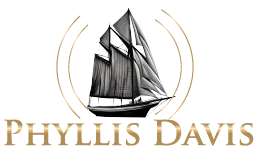Create High Ethical Standards for Your Personal Life in 2024
– by Phyllis Davis
Don’t Get Caught With Spinach in Your Teeth
The Ethos of Ethics and Etiquette in American Business
-by Phyllis Davis
Available April 1, 2024
Ethics is like insurance. Everyone needs it, but most don’t want to take the time to pay the price to develop and maintain high ethical standards.
As a nation, we see daily reminders of the decline of ethical standards in our national and state governments, companies of all sizes, our educational systems, and even places of worship. However, there are excellent examples of individuals and companies capable of high ethical standards, but they don’t always make the news. It is often said about the news, “If it bleeds, it leads.” Positive news doesn’t always make it above the fold.
Let’s explore the challenges and solutions for succeeding and holding yourself as an individual and your company to high ethical standards.

Individual Ethics: The High-Wire Act of Being Good
Three Suggestions for Acknowledging and Monitoring Your Individual Ethics
1) Develop a personal code of ethics that outlines your core values and principles that guide your behaviors.
2) Seek a mentor, coach, or accountability partner who can provide support, guidance, and suggestions if you stray from your values.
3) Create a system for identifying and avoiding ethical risks, such as a pre-mortem analysis, before making major decisions.

Five Areas to Examine Regarding an Individual’s Ethical Standards
1) Moral Relativism: Imagine walking a tightrope between a jungle gym of conflicting cultures. Balancing respect for all while holding onto your principles can be a dizzying dance. It would be best to stay focused, listen to your inner compass, and, sometimes, take a leap of faith.
Examples of positive Moral Relativism:
- There is a temptation for leaders to push for inappropriately adjusting their tax situations to their advantage. This will often come back to bite the company and cause problems in the future.
- Companies seldom hire or retain leaders with DWIs or similar offenses, which can cause problems for the company’s image.
- Any offense, such as sexual misconduct or other inappropriate behavior, is grounds for dismissal to protect the company’s image.
- A reputation for chronic or habitual tardiness disrupts team meetings and workflow and creates a negative work environment.
2) Cognitive Biases: They are blind spots on your ethical radar. They can steer you into moral dead ends before you even know it. The trick is to shine a light on them, acknowledge their sneaky ways, and chart a course based on conscious choices, not subconscious glitches.
Examples of positive Cognitive Biases:
- Believing that if someone has one positive trait, they also have other positive traits.
- Resist conforming to the beliefs and behaviors of groups to fit into the group.
- Choosing to focus on positive information rather than focusing on salacious and negative information.

3) Temptation and Opportunity: Picture a devil on one shoulder whispering, “Free cookies!” and an angel on the other reminding you about ethical sugar highs. Resisting the sugar rush and sticking to your principles takes willpower, like training for a moral marathon.
Examples of positive Temptations and Opportunities:
- Refusing to engage in unacceptable or illegal behaviors and shortcuts to success.
- Create accounting standards that reflect honesty on your taxes.
- “Neither a borrower nor a lender be.” – Shakespeare
- Avoid leaving a trail of broken hearts in your wake.
4) Lack of Knowledge: It’s like navigating a maze in the dark. Staying informed about ethical hot buttons, emerging issues, and different perspectives is crucial. Think of it as carrying a torch to illuminate the path ahead.
Examples to remedy Lack of Knowledge:
- Plan a vacation and then save money to pay for it.
- Study your health insurance policy before you become ill or have an accident.
- Hire an attorney to prepare your will, power of attorney, living trust, advanced directive, and financial documents. Include your life insurance policy, technology or social media information, and perhaps funeral arrangements.
5) Social Pressures and Conformity: Picture your friends pressuring you to jump off an ethical cliff. Peer pressure can be a mighty wind, but remember, you have your wings. Trust your gut, be your moral pilot, and soar above the crowd.
Examples of positive action in the face of Social Pressures and Conformity:
- Raise your standards and make friends who say and do positive things in their lives.
- Avoid overdrinking and then driving, overeating, or drug use.
By creating ethical standards for yourself, you will become aware of your decisions throughout 2024. Take the time to plan ahead for success.

